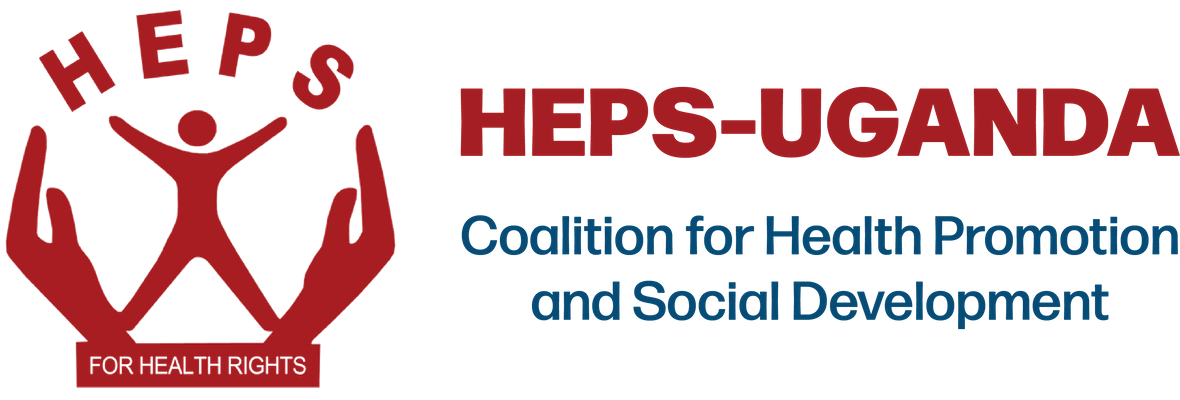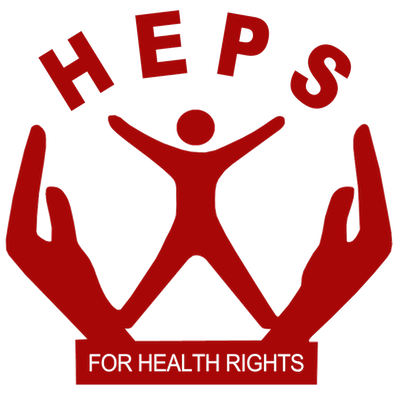From us,
-
HEPS-UGANDA@25 organized a Civil Registration and Vital Statistics (CRVS) journalist workshop on 26 March, at Fairway Hotel, Kampala, bringing together practitioners from across the print, electronic, and digital platforms, who interacted with experts and actors from the Ministry of Health, and community representatives. The workshop aimed to equip journalists and commentators with in-depth knowledge of CRVS and its importance in governance, public health, and human rights. Participants also gained practical skills in identifying, investigating, analyzing, reporting, and commenting on CRVS issues in an informed, sensitive, and engaging manner. Additionally, the event provided access to existing CRVS data and resources to support accurate and insightful reporting while fostering a sustainable network for knowledge-sharing, best practices, and mentorship among media professionals and relevant stakeholders.
-
HEPS-UGANDA@25 took part in a meeting organized by Baylor Uganda, aimed at discussing and reviewing the Monitoring and Evaluation (M&E) plan for the second phase of the Antimicrobial Resistance (AMR) National Action Plan (NAP II). HEPS-UGANDA@25 is an implementing partner of the Fleming Fund’s second AMR Country Grant under the Baylor Uganda Consortium.
-
HEPS-UGANDA@25 took part in the Uganda Coordination Meeting for Quarter 5, hosted by the Uganda Fleming Fund. The meeting focused on reviewing work progress and sharing lessons learned throughout the quarter.
From our partners:
-
Center for Health, Human Rights and Development (CEHURD): Working towards advancing a Gender Just Society in Eastern Uganda, CEHURD supported Iganga district to convene their District Coordination Committee meeting on 25 March, chaired by the Iganga Chief Magistrate. In attendance were political leaders, local government representatives, Police, Judicial Officers, religious and cultural leaders, and civil society representatives. They discussed the progress of the Generation Gender Project, which aims to strengthen sexual and reproductive health and rights (SRHR) advocacy, enhance access to essential services, and foster community-led solutions.
-
Oxfam Uganda: Oxfam Uganda conducted a community outreach in Mutumba sub-county, Namayingo district 26-27 March, and provided a range pf SRHR services, including counseling, HIV testing, family planning, immunization, sensitization, and awareness. In these engagements, youth corners created a safe space for young people to interact with healthcare providers freely, without feeling shy or intimidated by the presence of their parents and community members.
-
Reproductive Health Uganda: In the implementation of the Stand Up for SRHR project, RHU held a strategic meeting with the Namayingo district leadership. During the discussion, the district provided a status report on the project’s implementation, highlighting the strong partnership between stakeholders in expanding access to SRHR services for marginalized and vulnerable groups. The district also reaffirmed its commitment to fostering a supportive environment for the project’s smooth execution.
-
International Community of Women Living with HIV East Africa (ICWEA) supported Uganda AIDS Commission (UAC) to convene the quarterly National HIV Prevention meeting 28 March, at Silver Springs Hotel. The meeting aimed to update the Committee on the new WHO Post-Exposure Prophylaxis (PEP) Guidelines, and to develop a domestication plan for their implementation.
From your community,
-
Kitgum reports 12 suspected Mpox cases in children: 12 suspected cases of Mpox have been reported in children in Namokora Town Council, Kitgum District. They were rushed to Namokora Health Centre IV for treatment. According to Titus Komakech, the Surveillance focal person, the children, ranging from 3-9 years, are from two schools, St Kizito and St Paul Nursery and Primary schools in Namokora Town Council. Mpox is an infectious viral disease characterized by fever, headache, and a characteristic rash.
-
Kitovu Mobile Launches Cervical Cancer Vaccination Drive in Greater Masaka: In response to the alarming increase in cervical cancer cases in the Greater Masaka subregion, Kitovu Mobile, a non-governmental organization (NGO), is set to launch a comprehensive vaccination campaign targeting girls aged 9-15 years in Masaka City, Masaka district, and Kalungu district. Dr. Idd Matovu, deputy executive director of Kitovu Mobile, highlighted that approximately 70% of cervical cancer cases are diagnosed at advanced stages, making effective treatment a challenge. To combat this, the organization plans to implement early screening programs for women aged 22-45 years, facilitating timely detection and treatment.
From Uganda,
-
New HIV prevention drug for babies: Dolutegravir is a game-changing HIV therapy for prevention and treatment for babies born to HIV-positive mothers. The oral film is a new drug formulation being tested for the first time in babies. It is small, thin, flavored, and dissolves quickly on the baby’s tongue. The film offers a more efficient and user-friendly alternative to dispersible tablets, which require water and are administered by cup or syringe, which increases spillage risk and incomplete dosing. However, the film is not yet available for purchase.
-
Katikkiro Mayiga rallies parents on malaria vaccination: The Katikkiro (Prime Minister) of Buganda Kingdom, Charles Peter Mayiga, has urged parents to take part in the forthcoming countrywide vaccination exercise against malaria. “Health is a priority in Buganda Kingdom because the journey to put Buganda back on top requires healthy people. In most homes, we are affected by different diseases, but malaria is the disease that bothers us the most,” Mayiga said. The WHO approved a novel vaccine against malaria, and the Ministry of Health has announced it is being incorporated into routine childhood immunization.
-
MPs raise alarm over rising antimicrobial resistance: Legislators subscribing to the Parliamentary Forum on Antimicrobial Resistance (PF-AMR) have urged the Government to prioritize research into the growing drug resistance in the treatment of humans and animals. “We are facing a crisis, and it’s essential we take immediate action to address this issue,” said Dr. Timothy Batuwa, leader of the Forum and Shadow Minister of Health in Parliament. The legislators are also advocating for stricter regulations, particularly the enforcement of a prescription requirement for pharmaceutical purchases.
-
Reproductive cancers and social media are among the emerging Sexual Reproductive Health Rights Issues in addition to traditional issues, such as gender-based violence (GBV), high persistence of maternal mortality and morbidity, unsafe abortion, female genital mutation, and child marriages. In addition, a report of the International Centre for Research on Women in 2024 has revealed that other issues are rising HIV fatigue, high HIV incidence among adolescent girls and young women (AGYW), and a rise in the number of SRHR exclusion-prone persons.
From the region,
-
Groundbreaking South African HIV cure trial shows promising results: A ground-breaking HIV cure trial conducted in Durban, South Africa, has demonstrated promising results in achieving antiretroviral therapy (ART)-free virus control. A first for Africa, the HIV cure trial shows that 20% of trial participants remain off ART and are virally suppressed after one-and-a-half years. Results provide insights toward the development of future HIV cure approaches. The results of the study were presented at the 2025 Conference on Retroviruses and Opportunistic Infections (CROI), in San Francisco, USA.
Global health security,
-
More than 47 million people sign a call for clean air for better health: More than 47 million health professionals, patients, advocates, representatives from CSOs, and individuals worldwide have signed a resounding call for urgent action to reduce air pollution and to protect people’s health from its devastating impacts. This global call to action, spearheaded by WHO and international health organizations will be presented at the Second Global Conference on Air Pollution and Health, set to take place in Cartagena, Colombia, on 25-27 March.
-
WHO calls for urgent action to address worldwide disruptions in TB services: On the occasion of the 2025 World Tuberculosis Day, marked 24 March, WHO called for urgent investment of resources in the protection and maintenance of TB care and support services. TB remains the world’s deadliest infectious disease, responsible for over 1 million deaths annually. Global efforts to combat TB have saved an estimated 79 million lives since 2000. However, the drastic and abrupt cuts in global health funding happening now are threatening to reverse these gains.
-
UK draws up new disease-threat watch list: The UK has a new watch list of 24 infectious diseases that could pose the greatest future threat to public health. Some are viruses with global pandemic potential – like COVID-19 – while others are illnesses that have no existing treatments or could cause significant harm. Avian flu is on the list, as well as mosquito-spread illnesses that may become common with rising temperatures from climate change, according to the UK Health Security Agency (UKHSA). The aim is to steer scientists and investors into making new tests and vaccines or medicines in preparation.






